detail profile jarom c3 adr hanzl c3 adk
Peran Yang Di Mainkan Jaromír Hanzlík
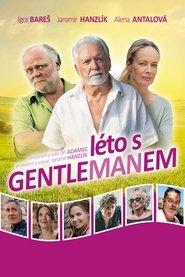 Anna spends every summer with her...
Anna spends every summer with her...Summer with the gentleman 2019
Anna spends every summer with her husband in a neighborhood a few dozen kilometers outside Prague. They've been together for ages, so their marriage, as is so often the case, has become routine and stereotyped. For a long time, the man has divided his time fairly between drinking with friends in the pub and making ship models of matches in bottles; His wife is virtually invisible to him. Anna spends several days each summer and enjoys regular meetings with her friends and colleagues who visit her in picturesque Central Bohemia on bike tours around Kamýk Castle.
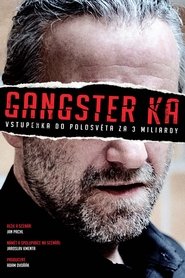 A film based on a book...
A film based on a book...Gangster Ka 2015
A film based on a book by Jaroslav Kmenta tells the story of a mafioso who got rich by tax fraud of billions of crowns in transactions with petroleum products and who later tried to gain control of the state-owned petroleum concern. The main character is the gangster Radim Kraviec (Hynek Cermák). He was always capable of violence, but when his father is abducted and killed by a competing mafia, he is changed into a murdering monster.
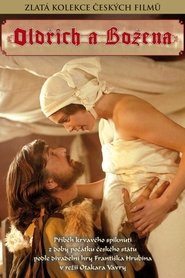 At the turn of the 10th...
At the turn of the 10th...Oldrich and Bozena 1985
At the turn of the 10th and 11th centuries Boleslav's kingdom fell apart in the fratricidal war between the Přemyslovci and the other clans the main profiteer of this being the German emperor. At that time it seemed as if the Czech state and the lineage of its princes was awaiting its end..." It is with these words that the tale of this film begins, whose narrative is based upon the the play by František Hrubín of the same name.
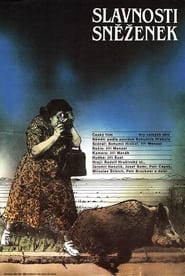 This movie is based on texts...
This movie is based on texts...The Snowdrop Festival 1984
This movie is based on texts of Bohumil Hrabal, world-known Czech prosaic. It's a story (in a form of a mosaic of short episodes and pictures) about the sadness and happiness of inhabitants of Kersko (Kersko is a small woody area full of cottages and roods). These people are both simple and sensitive, they have their own pleasures (e.g. Leli is a collector of cheap, but inutile things) and the greatest delight of all of them is a hunting. Crude poetics of amateur hunting is screened by dreamy pictures of this area. Menzel mixes sentimental lyricism and rough (but not vulgar!) humor and the outcome is the never-ending landscape of continuous life in the proximate nearness of nature. The performances of actors are brilliant. Both Rudolf Hrusinsky as a Franz and Jaromír Hanzlik as a Leli have nonrecurring charm bottomed on a pain and inebriation. Only the music is not perfect: Jiri Sust usually assembled his film music from his older works and in this movie there is many quotations.
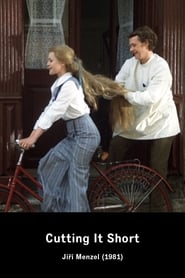 Francin manager of a smalltown brewery...
Francin manager of a smalltown brewery...Cutting It Short 1981
Francin, manager of a small-town brewery, has a charming wife whose abundant blonde locks are an adornment to the town. Maryska looks ethereal but loves meat and beer, while Francin is an ascetic. The strict members of the brewery board of directors come to audit the accounts, but are diverted from concentrating on Francin's detailed reports by Maryska, who has organized a pig-killing feast and is ably assisting the butcher. When she invites the old curmudgeons on the board to enjoy the fresh pork, they are too happy to agree. Francin doesn't know whether he is going to get a permanent contract. To make things worse his brother Pepin - eccentric, noisy and garrulous - turns up on an indefinite visit.
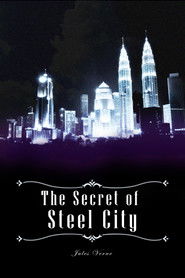 The film is a metaphor for...
The film is a metaphor for...The Secret of Steel City 1979
The film is a metaphor for the Cold War. It depicts two neighbouring nations: peace loving Fortuna and the not so peaceful land of the Steel City.
 There are still water spirits among...
There are still water spirits among...How to Drown Dr. Mracek, the Lawyer 1975
There are still water spirits among us. One group lives in Prague, led by Mr. Wassermann, who is using his wife's family as a servants. All they need is their old house near the river. But the house is to be demolished. They have to stop it. And the only way is to drown Dr. Mrácek, who is responsible for the demolition. But he falls in love with Wassermann's niece Jana. He changes to fish, is mistaken for water spirit from Germany, is drowned and revived again. The other problem is the flour with ears... and so on...
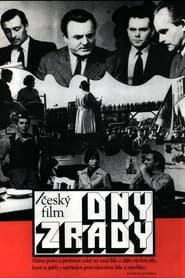 This feature film based on the...
This feature film based on the...Days of Betrayal 1973
This feature film based on the events of 1938 is a chronicle of the futile efforts of the Czechoslovak president Edvard Benes (Jirí Pleskot), politicians and ordinary citizens, to save the independence and the territorial integrity of the state from the advance of Hitler's Germany. On the 29th of March 1938 the leader of the Sudeten Germans Henlein (Werner Ehrlicher) has a meeting with Hitler (Gunnar Möller). Hitler orders him to intensify pressure on the Czechoslovak government. On the 24th of April in Carlsbad, the Sudetendeutsche Partei (Sudeten German Party) decides upon eight demands that are unacceptable to the Czechoslovak President, since they would ultimately lead to the break-up of the Republic. Benes still shows a certain willingness to negotiate, and Henlein resents this. The Germans are determined to make further negotiations impossible through incidents and violence.
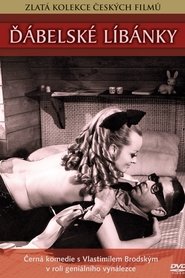 Black comedy about a genius inventor...
Black comedy about a genius inventor...Devilish Honeymoon 1970
Black comedy about a genius inventor and two young, smart and beautiful women. Both of them putting all their effort into getting the one man. This will inevitable lead to all sorts of mischief, crime and even a murder. This murder-comedy, shot at the dawn of normalization has intentionally broke off from any connection to the reality of its time. The director Zdeněk Podskalský has focused on creating intriguing story lines, revolving around the two endeavouring female characters who are fighting for the same man. Two competing parties are not only ready to kill the other, but also (if necessary) the potential groom. This film has enabled the members of the cast, composed mainly of the brightest stars of the Czech acting scene of that time, to show an incredible acting range, from the lightest comedy to the darkest cynical morbidity.
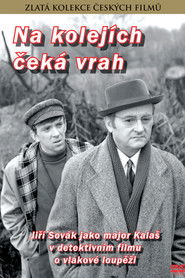 An escort composed of three people...
An escort composed of three people...A Killer on the Tracks 1970
An escort composed of three people transports a huge amount of new one-hundred crown banknotes in a special railway car. At the 196th kilometer, a village girl is waiting at the railway crossing and spots two men removing some packages from the track. The scene is immediately followed by the report of a gun and the unwanted witness is shot dead. Soon afterwards, on the 201st kilometer, the train explodes. Only one of the escorts Lenk (Radoslav Brzobohatý) survives the explosion, taken to hospital with serious injuries. Criminologist Major Kalas (Jirí Sovák) and the very young Second Lieutenant Karlícek (Jaromír Hanzlík) patiently gather facts, leads and testimonies.
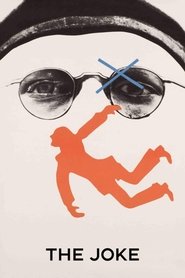 In the 1950s Ludvik Jahn was...
In the 1950s Ludvik Jahn was...The Joke 1969
In the 1950s, Ludvik Jahn was expelled from the Communist Party and the University by his fellow students, because of a politically incorrect note he sent to his girlfriend. Fifteen years later, he tries to get his revenge by seducing Helena, the wife of one of his accusers.
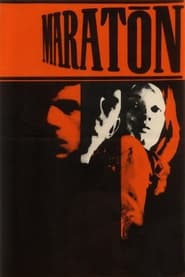 It is 5 May 1945 and the uprising...
It is 5 May 1945 and the uprising...Maratón 1968
It is 5 May 1945 and the uprising against the hated German occupiers has broken out in Prague. The Czech guards open the gate of the Pankrác prison to allow the prisoners to escape en masse. Many of them are shot dead by the German guards but young Ruda (Jaromír Hanzlík) manages to run away. He is taken care of by one of the Prague fighters, concierge Kytka. Kytka hides him in the flat of the house's owner where only the young maid Karla (Jana Brejchová) is left, ordering her to take care of Ruda.
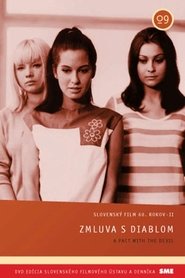 A comedy about five students who...
A comedy about five students who...A Pact with the Devil 1967
A comedy about five students who are un-justly suspected of trying to lose their virginity before their graduation. The five girls first try to defend themselves, but when they find out that nobody believes them - neither the school principal nor even their own parents - they decide to accomplish what they have been falsely accused of. And although their clumsy attempts are mostly comic, at one point they almost cause a big tragedy.
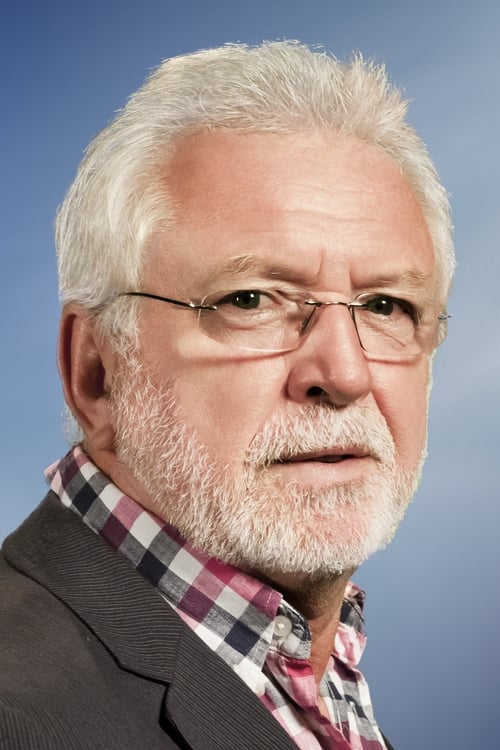
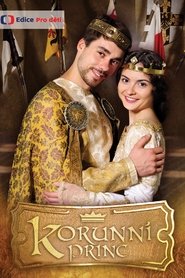
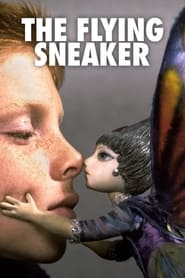 Little Rehor isnt allowed to play...
Little Rehor isnt allowed to play...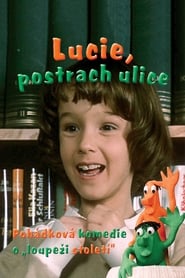 A first part of a funny...
A first part of a funny...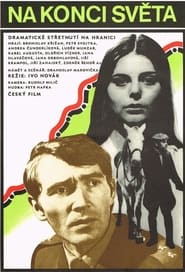
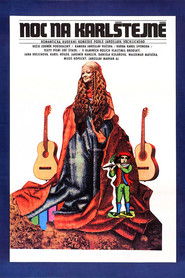 No Woman is allowed into Karlstejn...
No Woman is allowed into Karlstejn...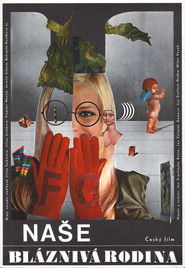 Twelveyearold Jana returns from the hospital...
Twelveyearold Jana returns from the hospital...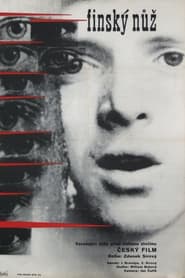 Two young men thinking that theyve...
Two young men thinking that theyve...